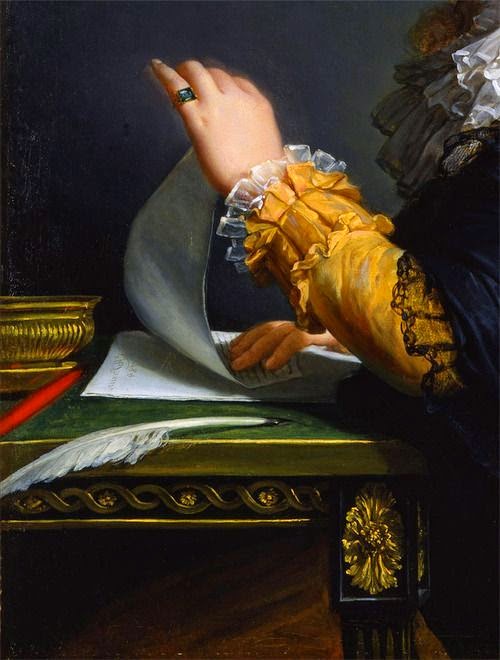O death, rock me asleep,
Bring me to quiet rest,
Let pass my weary guiltless ghost
Out of my careful breast.
Toll on, thou passing bell;
Ring out my doleful knell;
Let thy sound my death tell.
Death doth draw nigh;
There is no remedy.
My pains who can express?
Alas, they are so strong;
My dolour will not suffer strength
My life for to prolong.
Toll on, thou passing bell;
Ring out my doleful knell;
Let thy sound my death tell.
Death doth draw nigh;
There is no remedy.
Alone in prison strong
I wait my destiny.
Woe worth this cruel hap that I
Should taste this misery!
Toll on, thou passing bell;
Ring out my doleful knell;
Let thy sound my death tell.
Death doth draw nigh;
There is no remedy.
Farewell, my pleasures past,
Welcome, my present pain!
I feel my torments so increase
That life cannot remain.
Cease now, thou passing bell;
Rung is my doleful knell;
For the sound my death doth tell
Death doth draw nigh;
There is no remedy.
Martin Pope went to investigate the origins of this poem and discovered a manuscript version of it in a contemporary book of poetry, so we know it was written around 1536. But was it really written by Anne herself?
While Anne Boleyn was imprisoned in the Tower, strict instructions were given that every word the queen said was to be recorded. To ensure this, Anne was never to speak to the ladies guarding her without the presence of Lady Kingston, the wife of the Tower's constable.
Kingston never records that Anne wrote anything. He makes one mention of Anne asking if she had permission to write to Cromwell:
[Anne said] I shalle desyre you to bayre a letter from me . . . . . . . . . . [to Master] Secretory. And then I sayd, Madam, telle it me by [word of mouth, and I] wille do it.
Apparently, Anne was not to be allowed writing materials, but was only allowed to pass messages through Kingston. Her brother seems to have been under the same restriction, because when he received a letter from his wife, Jane Parker, he had to reply verbally.
There is a letter "From the Lady in the Tower" purportedly from Anne to Henry, but it is not in her handwriting and is of doubtful authenticity. Kingston never mentions it, and considering the restriction just mentioned, it's unlikely to have been written by Anne.
None of this means it's impossible that Anne was the poem's author, of course. It is within the realm of possibility that Kingston's report of Anne writing the poem could have been lost in the 1731 fire - but it's unlikely.
During Anne's imprisonment, Henry wrote to Jane Seymour:
Advertising you that there is a ballad made lately of great derision against us, which, if it go abroad and is seen by you, I pray you pay no manner of regard to it. I am not present informed who is the setter forth of this malignant writing, but if he is found out, he shall be straightly punished for it.
The ballad Henry refers to hasn't survived. His agents were successful in wiping it out, but O Death, Rock Me Asleep has come down to us, preserved in manuscript form. It's doubtful we'll ever know its author, but the poem is evidence that the injustice Anne was suffering was known far and wide, and there were people who were sympathetic to her plight.
O Death was soon set to music, supposedly by a former chaplain of Anne's.
Around 1583, another song was created, entitled Queen Anne's Lament, which may have been composed by Robert Johnson.
Defiled is my name, full sore,
through cruel spite and false report
that I may say for ever more
farewell my joy, adieu comfort.
Full wrongfully ye judge of me
unto my fame a mortal wound
say what ye list it will not be,
ye seek for that cannot be found.
It seems the sad fate that befell Anne Boleyn lingered in popular memory.










No comments:
Post a Comment